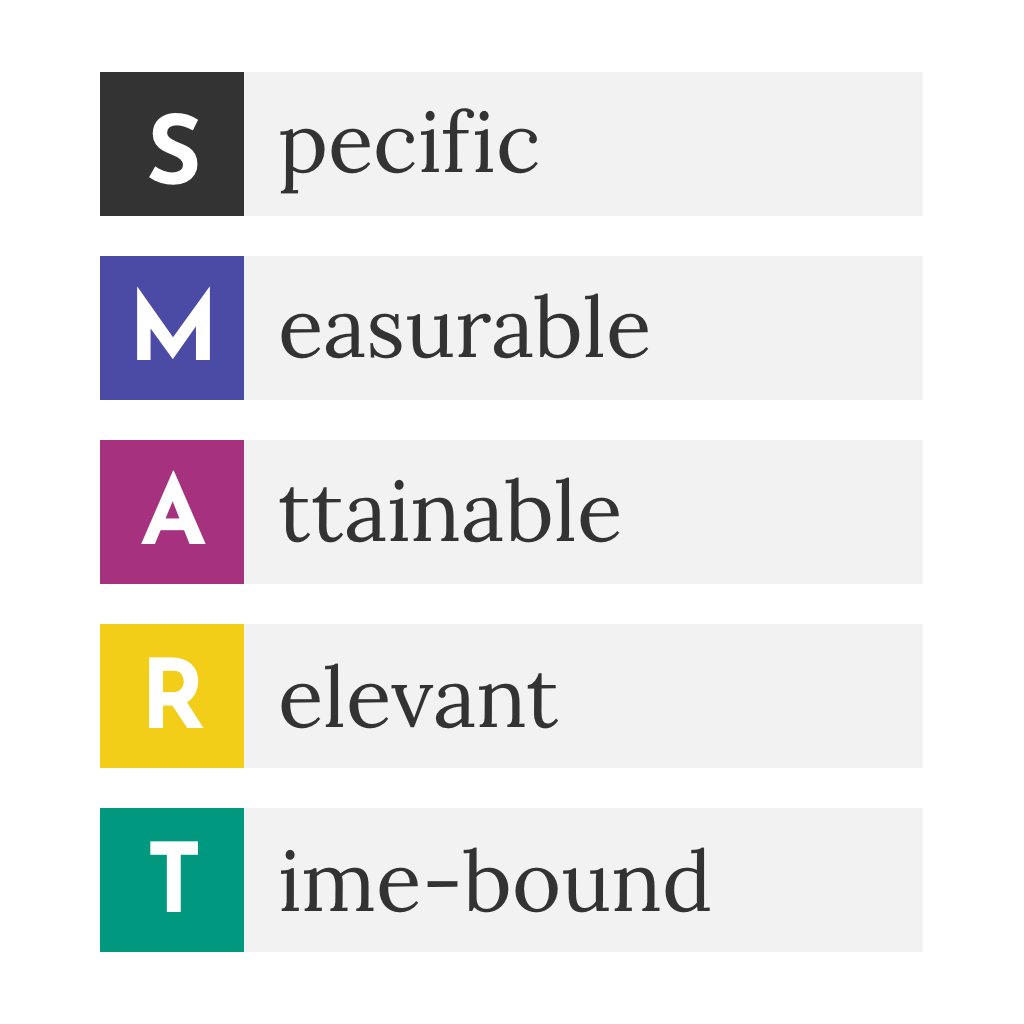A project goal describes the desired state that should occur after a project has been executed.
Project goals facilitate the planning and setting of milestones. They serve as a benchmark for success in project acceptance. And last but not least, they have a motivating effect on the project team, helping to clearly distribute tasks and structure processes without any uncertainties.
Project Goals Formulated Correctly Meet the SMART Criteria:

Specific – The goal is formulated in a specific way.
Measurable – The achievement or non-achievement of the goal must be quantifiable.
Attainable – The goal must also be achievable under given conditions.
Relevant – The project team must be convinced of the goal.
Time-bound – The project goal must have a deadline or defined end.
Detailed information about the SMART criteria
In addition, there is more flexibility in the project if the project goals are formulated in a solution-neutral way. This means that while they describe "what", they do not make any prescriptions about "how".
Non-goals of a Project
Also, the definition of non-goals that should not be achieved by the project or may not be achieved under any circumstances, can be helpful in order to draw objective boundaries to the project content. It will make it easier for the project team to stay focused.
Why Project Goals Cannot Be Realized
The Incorrect Assessment Problem
An incorrect or inaccurate assessment of the actual state is often the reason why goals that sound quite feasible cannot be realized.
Often, ambitious project goals are set, but the own starting position is assessed unrealistically. The more precise and clear the starting situation is defined, the more realistic the project goals - and the planning of time and resources.
Whoever defines project goals should, above all, remain true to them. Imagine, the route of a marathon would be adapted while the runners are already on the way. That would not only cause great confusion, but also make it impossible to adequately prepare and optimally use one's own resources.
To conclude: You really should define your project goals SMART.







 Jira
Jira
 Confluence
Confluence
 SAP
SAP
 API
API



